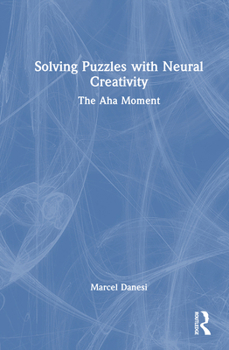Solving Puzzles with Neural Creativity: The AHA Moment
This book takes an in-depth look at the tradition of solving puzzles and considers the psychological cause and effect of the "Aha moment" that familiar flash of sudden insight. Everyone loves a good puzzle, but why is this so? Is it because puzzles provide a form of escapism from the routines of daily life? Or do they reveal something fundamental or perhaps even primal about human cognition and consciousness?
In this book, Marcel Danesi considers the importance of puzzles to the study of mind and culture and explores how they stimulate creative regions of the brain. Danesi explores the history of classic puzzles across time and cultural spaces and examines the psychological link between puzzle solving, mental imagery and visualization. He takes an in-depth look at the difference between puzzles and games based on systematic reasoning, as well as the role of language meaning and structure in the solving of riddles. Overall, the book puts forward the idea that puzzles provide cognitive data on how the brain might function when processing information, via the neurocircuitry that supports creativity.
Examining all kinds of puzzles including verbal, nonverbal, and mathematical, Solving Puzzles with Neural Creativity will be of great interest to students and scholars of psychology, cognitive science, neuroscience, and anthropology.





